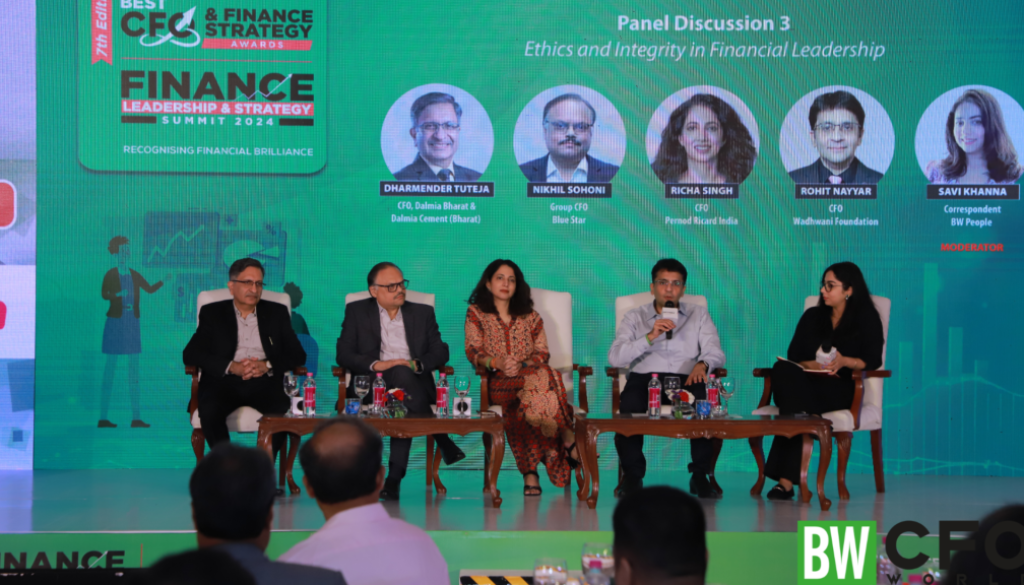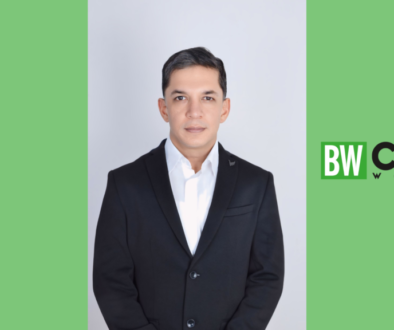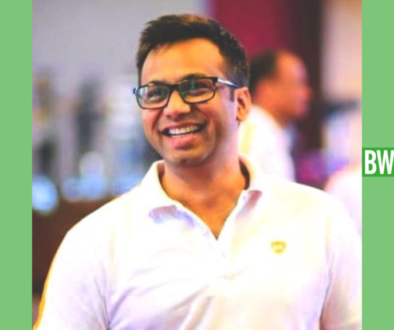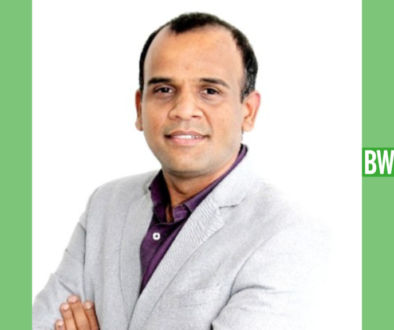Navigating Ethical Waters: Insights From Financial Leaders
The BW CFO World Finance Leadership & Strategy Summit 2024 has featured the insightful discussions where thought leaders from the finance realm gather to dissect the nuances of Ethics and Integrity in Financial Leadership, emphasising long-term sustainability, regulatory comprehension and transparent governance
The BW CFO World Finance Leadership & Strategy Summit 2024 + BW CFO World Best CFO & Finance Strategy Awards Agenda features a thought-provoking panel discussion featuring notable leaders from prestigious organisations shed light on the Ethics and Integrity in Financial Leadership.
Rohit Nayyar, CFO, Wadhwani Foundation, shared his opinions on the Ethical dilemmas that financial leaders face on regular basis, “Ethics is a balance between how you grow as a business and how you follow the rules and regulations, as it will be the cause of the business’s long-term sustainability. There is no shortcuts to success. Despite of just resorting day to day operational issues, one’s should look up for the serene, understanding the situation and proceeding accordingly; is how we can maintain our ethics”.
Richa Singh, CFO, Pernod Ricard India, suggests that the problems usually occur to you after you say goodbye to aspirational sales and marketing teams who were frequently more focused on short-term profits. The problem disappears if a CFO fully comprehends the purpose of any law or policy, which is imperative given our regulatory environment. Rather than just following the letter of the law, try to understand why it was implemented and share that knowledge so that you can close the deal.
Nikhil Sohoni, Group CFO, Blue Star, added that there is an option, but you might write in the wrong thing or something very close to it. A mistake can never be made in a correct way. It’s either correct or incorrect. Regarding ethics and what you should do, everything is clear-cut. How do you make sure you don’t breach the line since the world is so complicated.
Having awareness of media times is a second crucial element in developing it as a culture, that new employees are joining you who are not affiliated with your company. Thus, culture is something that must be developed.
Dharmender Tuteja, CFO, Dalmia Bharat & Dalmia Cement (Bharat), reflected on the daily decisions and dilemmas fellow list members encounters; while working with all stakeholder clients, suppliers, employees and as a result, the writing principle is needs to be a part of the operation. We need to follow the correct procedures for filing reports with the stock exchange.
Rohit Nayyar, CFO, Wadhwani Foundation, shared his opinion on making a profit. The CFO still plays a fiduciary role in the low-profit industry, it’s not about the world of profit; it’s about your shareholders and investors. He shares the ways to use the funds appropriately and for the organisation’s maximum benefit, particularly in this particular sector for the benefit of the larger community and beneficiaries collectively.
Also, I believe it’s crucial that we establish a common thread first and also imperative that we all learn to recognise what is right, as various stakeholders within an organisation may interpret what is right differently.
Richa Singh, CFO, Pernod Ricard India, feel that the ethics and competitive advantage are not mutually exclusive. Superior customer service and project product differentiation are the true sources of a sustainable competitive advantage. Every time when one’s have to make a trade-off between an ongoing ethical dilemma and a short-term gain, it’s not sustainable.
Also, the discounts are the first line of KPI and we are undoubtedly in the process of setting up a lot of KPI and the discounts are given to retailers and distributors in the manufacturing plans.
Dharmender Tuteja, CFO, Dalmia Bharat & Dalmia Cement (Bharat), shared his vision on establishment of the culture from the top down, beginning with mutual understanding between the top leadership, the CMD, the CFO and the promoters. In the world of investing, a number of institutional investors have overtaken local mutual funds and FIIs and it is clear that they all think highly of governance. That’s where choosing a company should start.
Nikhil Sohoni, Group CFO, Blue Star, according to me, there is only one answer if an ethical breach exists and if someone has committed it, there is no forgiveness for unethical behavior since you cannot have an employee in your organisation who is unaware of the ethics that govern your operations. That is what it is.
Richa Singh, CFO, Pernod Ricard India, says, leveraging technology to put up transparent data analytics will be key. Artificial intelligence will assist you in identifying patterns and behaviours that may raise a lot of red flags.
Rohit Nayyar, CFO, Wadhwani Foundation, believes that the CFO has a special position within the organisation and has the ability to effectively communicate and link various departments within an organisation.
Rohit Nayyar, added in his closing remarks, “I feel that we have all experienced difficulties in our careers, but as long as we are clear and firmly believe that there is no softer cushion to rest our internal clear conscience, then that is what I think is most significant as we have increased our net worth. Along with taking care of our lives and jobs, we should keep moving forward.”
Dharmender Tuteja, shared a narrative in his closing remarks, “I’m sure that many of you have watched the movie 12th Fail, wherein the question of whether to cheat or just pass was addressed. You might earn good grades by cheating, it’s not a guaranteed short path to success in life. You still have a long way to go in writing your novel if you are adhering to the practices. Consider that a pretty clear example of the real-world.”
Nikhil Sohoni, gave a small piece of advice in his closing remarks, “To establish trust, I’ll advise being upfront, truthful and consistent in your actions. As a CFO, you must therefore have courage. You cannot be tied down; your leadership team may be against you, but you must stand by that. When it’s necessary, stand up for your principles without considering the repercussions. By doing so and proving it time and time again, you’ll win the respect and trust of others.”




